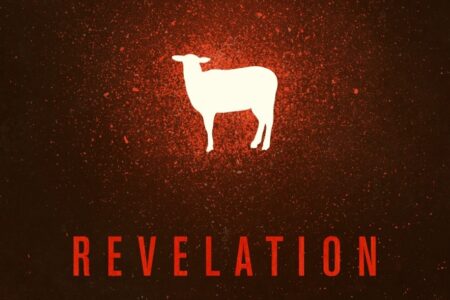Sermons from 2019 (Page 8)
“Take Up Your Cross” (Luke 9:21-27)
Take Up Your Cross Brad Mills / General Luke / Crucifixion; Discipleship / Luke 9:21–27 Luke continues his orderly account of the ministry of Jesus providing his readers with a certainty about the truth of the apostles’ teaching. This purpose heightens the need to be clear and honest about the challenges they would face living in a culture that was oftentimes hostile towards Christianity. Jesus never minimized the cost of discipleship in order to win more followers. He was…
“He Is Coming!” (Revelation 1:7-11)
He Is Coming! Brad Mills / General Revelation / %SecondComing / Revelation 1:7–11 John’s reliance upon Daniel is consistent in this opening section and throughout Revelation. He seems to have seen a similar situation between Israelites who had been exiled to Babylon during Daniel’s time, and first century believers living in Asia Minor and experiencing an escalating Roman persecution. In both ages, believers needed to be encouraged to persevere. They would’ve been feeling anxious about what the future held.…
“Four Major Views of the Millennium – 6” (Revelation 20:1-6)
Four Major Views of the Millennium – 6 Four Major Views of the Millennium – 6 Brad Mills / General Revelation 20:1–6 Critique of Dispensational Premillennialism 1. The Second Coming is not separated into two phases: Christ’s “coming” (parousia) is associated with the rapture (1 Thess. 4:15), Christ’s return with the saints (1 Thess. 3:13), and Christ’s defeat of the Antichrist (2 Thess. 2:8). Christ’s “revelation” (apokalypsis) is associated with the rapture (1 Cor. 1:7) and his coming in…
“Who is Jesus?” (Luke 9:18-20)
Who Is Jesus? Brad Mills / General Luke / Confession / Luke 9:18–20 In Mere Christianity, C.S. Lewis makes the argument that Jesus could not merely be a “good moral teacher” as many often claim. A man who was merely a man and said the sort of things Jesus said would not be a great moral teacher. He would either be a lunatic—on the level with the man who says he is a poached egg—or else he would be…
“Greeting to the Seven Churches” (Revelation 1:4-8)
Greeting to the Seven Churches Greeting to the Seven Churches Brad Mills / General Revelation / Revelation 1:4–8 John’s prologue set the stage for the symbolic language of Revelation. It was given to show the Church “things that must soon take place” (1). The events described in Revelation were about to begin at that time. However, spiritual warfare fills the present age. The vision held immediate relevance, even though not everything described occurred immediately. Jesus received the revelation and…
“Four Major Views of the Millennium – 5”
Four Major Views of the Millennium – 5 Lecture 5: Dispensational Premillennialism Dispensationalism and Eschatology Definition: Christ’s second coming not only occurs before (pre) his earthly MR, but a secret rapture of the Church takes place prior to the Great Tribulation. The promises made to the nation of Israel throughout the Old Testament are, for the most part, reserved for fulfillment during the MR: Isa. 65:17-25 This passage describes the new heavens and the new earth (17) where we will…
“The Structure of Revelation – Pt. 2” (Revelation 1:1-3)
The Structure of Revelation – Pt.2 Last week I mentioned that we made it to our final introductory sermon. And we certainly did. But what I didn’t say was that we would be looking at that final introduction in two parts… We began our consideration of the structure of Revelation, last week, by showing John’s dependence upon the Old Testament. We cannot understand Revelation without taking his frequent allusions to 36 of the 39 books of the Old Testament into…
“Four Major Views of the Millennium – 4”
Four Major Views of the Millennium – 4 Lecture 4: Dispensational Premillennialism Distinctives of Dispensationalism Historic Premillennialism has existed since the second century, but Dispensationalism wasn’t articulated until the late nineteenth century by John Nelson Darby. Literal interpretation of the whole Bible, including Prophecy: They make no distinction between the various genres of Scripture. Historical, doctrinal, moral, and prophetic content are all taken in their literal, normal sense. They do allow for the use of figurative language, but they interpret…
“Jesus Feeds the Five Thousand” (Luke 9:10-17)
Jesus Feeds the Five Thousand (Luke 9:10-17) In chapter eight, Jesus told several parables about the kingdom of God. Since then he has gone on to do many miracles which reveal the presence of that kingdom. In our passage this afternoon, Jesus is further revealing aspects of the kingdom that have come through his ministry. Luke places this pericope on its own, but it falls in between two episodes of significant people reacting to Jesus’s identity. It follows Herod’s superficial…
“The Structure of Revelation – Pt. 1” (Revelation 1:1-3)
The Structure of Revelation – Pt.1 Last week we looked at four major interpretive approaches to the book of Revelation and concluded that they all had something to contribute. This morning, we will not have time to consider the various outlines that have been proposed, but among those who take an eclectic approach to the book, there is general agreement about the structure. Dennis Johnson portrays the importance of the structure of Revelation with the analogy of a puzzle.1 “Hard-core jigsaw…



